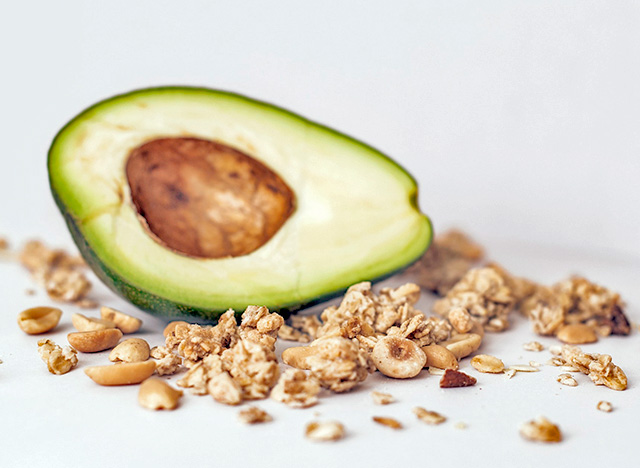What is the Keto Diet?
The keto diet, short for ketogenic diet, is a way of eating that focuses on consuming high amounts of fats, moderate amounts of protein, and very low amounts of carbohydrates. The goal of the diet is to shift your body into a state called ketosis, where it primarily burns fat for energy instead of carbohydrates.
 Avocado and nuts can be part of a Keto Diet
Avocado and nuts can be part of a Keto DietBy limiting carbohydrates in your diet, your body has to find alternative sources of fuel. It starts breaking down fats into molecules called ketones, which can be used for energy. This metabolic shift into ketosis is what gives the keto diet its name.
Why Follow a Keto Diet?
People choose to follow the keto diet for various reasons, including weight loss, improved energy levels, and potential health benefits.
What the Keto Diet Involves
The specific foods you can eat on a keto diet may vary depending on your individual needs and preferences. It's essential to focus on whole, nutrient-dense foods and pay attention to portion sizes to maintain the appropriate macronutrient ratios for ketosis.
When you follow a keto diet, you significantly reduce your intake of foods like bread, pasta, rice, sugary snacks, and some fruits. Instead, you consume foods that are high in healthy fats, such as avocados, nuts, seeds, oils, and fatty cuts of meat. You also eat moderate amounts of protein from sources like poultry, fish, and eggs.
Is the Keto Diet Effective for Weight Loss?
The keto diet has been shown to be effective for weight loss for some individuals, though its effectiveness can vary from person to person.
By drastically reducing carbohydrate intake and increasing healthy fat consumption, the body enters a state of ketosis, where it primarily burns stored fat for energy. This metabolic shift can lead to significant weight loss for many individuals.
The ketogenic diet also helps regulate blood sugar levels, reducing cravings and promoting feelings of fullness, which can contribute to decreased calorie intake.
Furthermore, the keto diet's emphasis on fat and protein-rich foods helps maintain muscle mass while targeting fat stores for energy.
Note: the keto diet may not be suitable for everyone, and it's always a good idea to consult with a healthcare professional or a registered dietitian before making significant changes to your diet.
Related Pages
- Paleo or Caveman Diet — a diet imitating the food humans consumed during the Paleolithic era, about 10,000 years ago.
- Carnivore Diet — involves exclusively consuming animal products and excludes plant-based foods
- Lion Diet — an elimination diet that includes only ruminant meat, a more extreme version of the Carniocvore Diet.
- Comparison of diets — a complete list
- Calculating Net Carbs — A practical guide for tracking carbohydrate intake while on a keto diet.
- Weight loss advice
- Eating for Health


 Current Events
Current Events